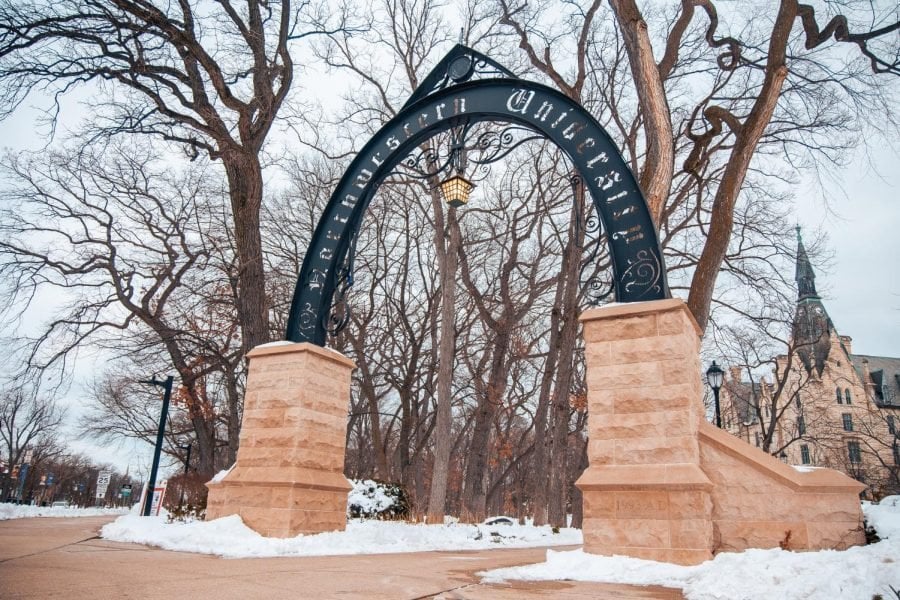Northwestern Medicine starts project to mitigate food deserts in Chicago
Daily file photo by Kelsey Carroll
The Weber Arch. Northwestern Medicine’s new project looks to mitigate food deserts and help patients with kidney disease.
July 20, 2021
Northwestern Medicine investigators have started a new project to mitigate food deserts and improve outcomes for patients with kidney disease in Chicago, according to a Thursday news release.
The project, which is a partnership between Northwestern Medicine’s African American Transplant Access Program, NUGoKidney and the Endeleo Institute, aims to provide those in Chicago — with an emphasis on predominantly Black communities — with access to healthy food. It will also provide support groups and educational resources to guide people in making healthy eating decisions.
“There has been so much research about the barriers to health equity for communities of color, but far fewer interventions,” co-principal investigator Dr. Dinee Simpson said in the release. “This project represents an intervention that is backed by research, but also concordant with community-reported need — it is how community partnerships should be.”
This is one of 21 projects supported by NU’s Racial Equity and Community Partnership grants program, which finances work that advances racial equity and builds partnerships with community-based organizations.
Email: [email protected]
Twitter: @rebecca_aizin
Related stories:
— Northwestern researchers develop first transient pacemaker that disappears when no longer needed


